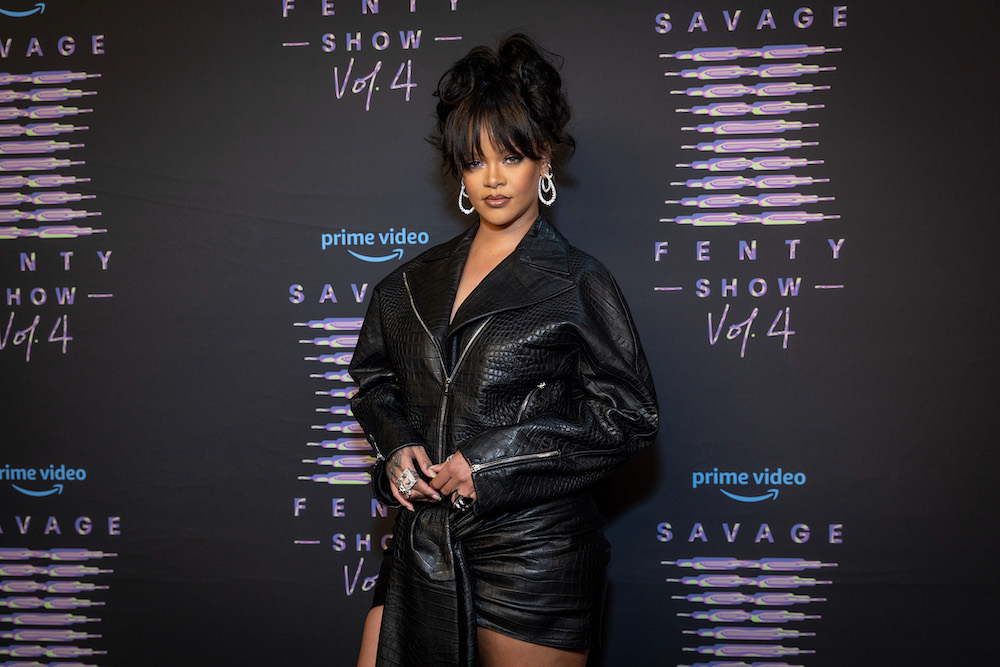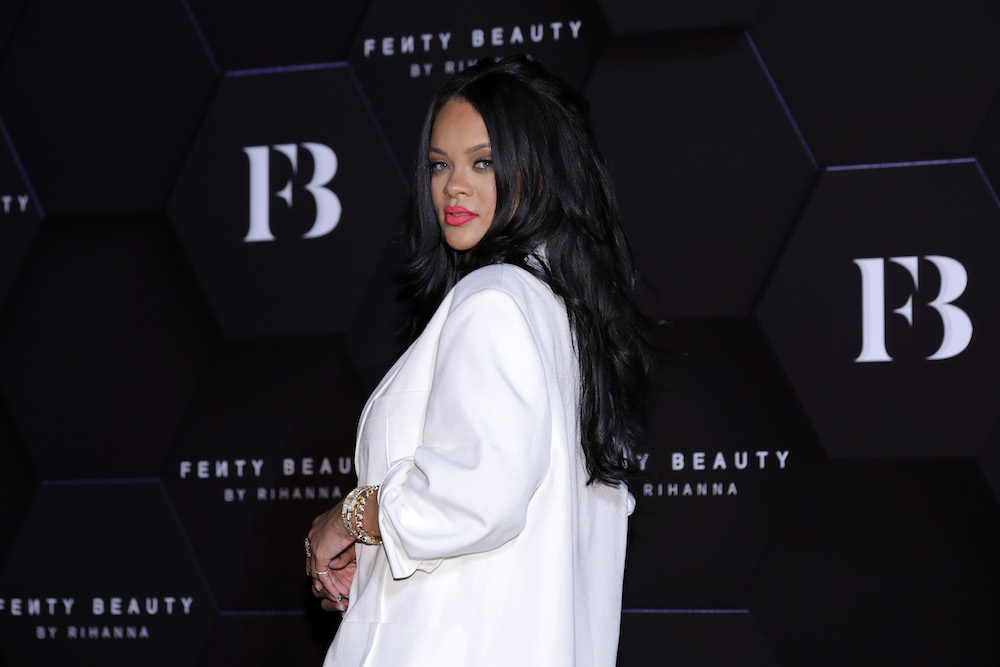
The richest artists in the music industry do not make most of their money from music. Take Jay-Z for example, the bulk of his yearly income comes from his investments in brands like Tidal, Armand de Brignac, D’Ussé, and his Roc Nation entertainment and sport management agencies. It’s the same with Kanye West thanks to his entities like Yeezy and GOOD Music as well as Diddy thanks to some hefty real estate investments. Contrary to what one might expect in such a male-dominated industry and world, at the top of the wealthiest musicians list sits none other than this weekend’s Super Bowl halftime show performer, Rihanna. Her monetary success is also mostly credited to profits outside of the music world, but there are several things that make her’s different from the rest.
Rihanna’s rise to being the music industry’s wealthiest artist didn’t come as a result of smart (or lucky) investing or a sharp talent with real estate. The Barbados-born superstar achieved astounding monetary success through Fenty, a fashion and beauty brand created to offer products that amplified her consumers’ beauty regardless of their gender, size, skin color, and more. According to Forbes, Rihanna’s current net worth is $1.4 billion and it’s not too difficult to see why that might be the case. Fenty is largely responsible for that number as it houses companies like Fenty Beauty, Savage X Fenty, and Fenty Skin, all of which were launched between 2017 and 2020. Fenty itself was launched in 2019 under the fashion house LVMH which made Rihanna the first woman to create an original brand for the fashion house and the first woman of color to lead an LVMH brand. That’s just one example of Rihanna’s milestone career outside of music. Fenty is undoubtedly not only a highlight for Rihanna, but it’s also a story to be studied and appreciated by all businessmen and businesswomen in the future. What makes its success even more applauding is that Rihanna nearly went bankrupt a decade before Fenty launched.

In 2009, Business Insider reported that her income plummeted from nearly $50 million to $2 million due to severe financial mismanagement from her accounting team. Three years later, she sued the accounting firm for mismanagement and won $10 million in damages. It should be noted that these three years were the most active in Rihanna’s career as she released four albums – Rated R, Loud, Talk That Talk, and Unapologetic – in that time span. It would be another four years until Rihanna delivered another project, that of course being Anti, and to this day, we’re still waiting for the follow-up of that album. Nonetheless, Rihanna’s success outside of music has given her the luxury to be as sporadic as she pleases with her musical outputs. Though the earnings that she receives from music and beauty are different, Rihanna made sure to approach the latter with the same artistic vision, intentionality, and divergent thinking that made her a star in music.
Rihanna’s brands won quickly thanks to the practice of inclusivity. Many brands in and outside the beauty industry, but especially in the beauty industry, preach inclusivity and do otherwise. In a well-publicized move, Fenty offered 40 different foundation shades to its consumers, a move unheard of in the beauty industry. The decision answered complaints from Black and brown customers who were beyond tired of not being represented by the various other brands in the industry. It also welcomed them into a world and company that accepted them for who they are and nothing less. A similar move was made in 2020 with Rihanna’s Savage X Fenty Vol. 2 show. Rihanna introduced plus-sized clothing for Savage X Fenty, and for the brand’s annual fashion show, she made sure to include plus-sized men and women. They were seen in the trailer for the show, the show itself, and on the Savage X Fenty website where the products were sold. In response to this, Christopher Rosa from Glamour, who described himself as a “fat, fem gay man,” wrote, “…to see someone with stretch marks, a stomach, and pecs that aren’t “perfect” not just be represented but celebrated means more to me than I thought it would.” He later added, “I didn’t realize just how much representation could help me in that battle until now.” Though it can’t be seen and physically held like money, the value of inclusivity is undeniable, and arguably, more important.

Luxury is often placed side by side with exclusivity, a pair that is then often placed next to value and wealth. Especially in the fashion world, it often seems like there is a hefty price to pay in order to indulge in what is deemed luxurious. Despite this, we’ve recently seen that this is not always the case. Take Teflar for example, its handbags have been a hot commodity for a few years now, and though are available to purchase for everyone at a reasonable price, this inclusivity hasn’t diminished its luxury. The point is, luxury and inclusivity can be and should be synonymous and it’s a concept that Rihanna understood from the very start with her Fenty brand.
There are many ways that Rihanna redefined the role of a Black entrepreneur. Through Fenty, she emphasized that success can be attained and maintained by looking in the mirror at the world around you – that is, the world that you’ve naturally existed in for your life. Pandering to those who don’t look like you and can’t relate to you, while also neglecting the rest, will only bring you short-term success. They won’t lift you up like your own will. Rihanna also threw caution to the beauty standards that have often put down certain groups to amplify others. The Fenty experience is available to anyone who seeks to amplify their own beauty and style. Rihanna’s entrepreneurial success isn’t connected so much to investing in companies or real estate and finding wins there, instead, she proved that chasing a vision and using her status to change the status quo around her is certainly possible. In a 2017 interview with Time, Rihanna said that her “lifelong obsession” with makeup products began with “watching my mom put her makeup on.” After getting her makeup done at 15 or 16 for a pageant, Rihanna added, “Ever since then, ever since I saw foundation on my skin, I could never look at my skin without foundation again. Makeup, it spoiled me.” Nearly two decades later, Rihanna has built an empire that gives consumers from all over the world the opportunity to have that same feeling.
